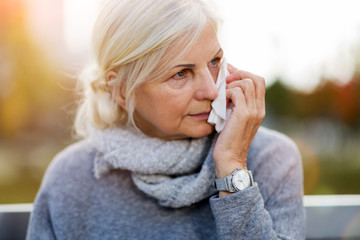By Jake Brennan
The transition one month ago when everything with COVID-19 really seemed to hit was extremely difficult for me. I had to switch from working with people in person to looking and talking with people through a computer screen to engage in telehealth. I was skeptical; a large part of me did not trust in technology to supplement real face time. The consensus between my clients and me is that telehealth, while not the same as being in the room, works surprisingly well, that the work remains the work—but it took my getting there. I was on the phone leaving and receiving voicemails in endless phone tag, buried in emails, I was caught up with the logistics of rescheduling, signing new consents, reaching out to necessary referrals in probation and behavioral health court, trying to force a huge transition into something seamless.
Above all, I wasn’t giving myself time to emotionally adjust to the new circumstances of my own life, what it would mean to practice social distancing, self-quarantine, to live in a city that in many ways had shut down to protect itself from the virus.
It wasn’t until an online meeting with several colleagues (only 3 days into working from home, but those 3 days felt long) that I even realized this last part. I talked about my frustration and how I felt like everything was barreling along and I couldn’t keep up. (Working in an agency, as I do, there often feels like 10 extra steps for each 1 that is practical.) I used the word ‘overwhelmed’ several times in this meeting. Then I heard others share their concerns…about family getting sick, not being able to visit aging parents, about business slowing and what the stock market dropping meant for their high school kids’ college funds, about pregnant mothers worried about their partners being allowed into the delivery room in a few weeks, husbands worried they would not be allowed into the delivery room with their pregnant wives… all of this had a very grounding effect on me. It brought me back down to earth, back into myself, and I realized just how much was going on right now. Most importantly, I realized I needed to stop trying to manage this as a therapist, and instead step into it as a human being.
I could say I felt acceptance: yes this is where we are now and yes it is very different. Acceptance yields unexpected resolution—not that things are resolved (because nothing regarding COVID-19 is, as of this writing, close to feeling resolved), more that it is ok that they are not. I thought more about what I was dealing with. There is the threat of the virus itself, the inundation of news, then there are my 94-year-old grandparents living in the lower west side who just a week ago were still shopping at Trader Joes, my mother who is now indefinitely out of work, there is my partner and me hunkering down inside, indefinitely, for who knows how long.
So I am writing about silver linings.
In the last two weeks I have been humbled in so many conversations, many with clients, and I have felt connected through our shared slivers of finding the good in all of this.
The opportunity to spend more time at home with loved ones has been voiced by many as their biggest point of gratitude, even while close quarters can be challenging (this has been extended to pets, as well). My first thought hearing this was that I do not actually have more time during the day with my partner; I am upstairs doing teletherapy and she is downstairs in meetings, working on research, both of us still putting in eight to ten-hour days, our breaks rarely coinciding.
But in thinking this, I miss something. When our work days end at 7, or 8, or 9pm, I suddenly do not have an hour commute home. I walk downstairs and, presto, we move from work to being together in seconds flat. We have been gifted this new hour that we do not normally share together, and we have seized this hour to go outside and run, to take long walks together at night through the eerily vacated streets of Philadelphia. It is like a secret fold of time, normally passed over by my night time commute, has become magically accessible to us; we have the luxury to experience ourselves moving together through the strange new ghost city, un-pressed for time. When, after, we cook and eat dinner, it is less like the coda at the end of fragmented days, and more like we have arrived here together
And yet I am aware as write this that for many, especially those living alone, this will not be the case. My gratitude for this gift is complicated because it is not separate from the empathy for those (whom I know) who do not have it, who are very alone right now. This is not so straight forward and clear cut (as though things ought to be straight forward and clear cut). So, there is an opportunity here, to take this fuller experience of gratitude and sadness as a gift, to embrace the complex feeling, because this complexity of feeling is, really, what it is to be alive.
Something else I have noticed in myself was brought up by one of my clients in session. She said, after debriefing about how crazy all of this is, “I actually don’t mind living a simpler way of life.” She went on to talk about mixed feelings of gratitude for being able to slow down and guilt at her pleasure as a result of—the price of— thousands dying from a virus with no cure.
First. For me, a “simpler way of life” in all of this has meant that, with everything closed and all friends keeping physical distance, I can settle into hobbies. (I have never liked the word hobbies, I think because somewhere along the way I decided serious, passionate life pursuits couldn’t be filed under the heading of hobby. I’ll do away with this for now). I have taken immense pleasure in being able to read, to settle into my own creative writing, to sit and play the guitar, sing, dance while listening to music, and to be free from the thought that there is something else outside of the house I should be doing, because in fact there is nothing going on outside of the house that anyone should be doing.
As a child I often struggled with boredom, with always wanting more. In my twenties I abandoned boredom for the pursuit of art, of creating things, of self-expression. Throughout my life I have relied on these things for purpose, and in my darker times, to keep me going. Now, in addition to creating my own art, I have found a natural connection between my work as a therapist and accessing fundamental aspects of creativity…the two seem to feed each other, my concept of what it is to express oneself fundamentally altered, enhanced and made richer through the experience of so many intimate conversations with so many people. And still, I cannot count how often, even recently, I have wished for more time…more time to work on my music, to settle into a better writing practice, to dance more, to read entire books in one sitting, to be free from THE GRIND that makes settling in difficult.
Self-quarantine, as it turns out, has been the unwitting invitation for me to do just that (at least for the two and a half days of the week I am not practicing therapy). I have found great pleasure in my free time since social distancing and being able to indulge in the artistic activities that bring so much fullness to my life. I wondered last weekend, having spent the afternoon writing in my warm sunny upstairs office beside a west facing window, if there is something about this—about the way I am now—that I could keep with me and continue to tap into whenever this is all over.
When my client expressed her pleasure with being able to slow down, to not have to worry about going out, missing out, and getting to ease off the pressure to BE PRODUCTIVE and indulge in walks with her dog in the woods, I felt connection. How many of us crave so much to be able to recalibrate, to be given time—to have free time forced upon us—and choose in what ways we will toil in it. There is something about living amidst COVID-19 that has opened a portal into a richer sense of being where, stuck at home, I now write, read, strum, sing and dance simply because I am here, because I am alive.
Which brings me to another point, of what immense luck and privilege I have to be able to say and feel such things. I am not sick right now. My work as a therapist, beyond rewarding, lends itself to my continued employment while others are out of work and struggling to afford basic necessities. Neither I, nor my partner, are working in a hospital or someplace where our risk for exposure is so high that we have to isolate from each other out of fear of contaminating one another. (My sister, on the other hand, a firefighter, continues to work 24 hour shifts every four days, as is the case with many of my clients whose jobs require them to still put themselves at risk). My passions are suited for self-containment just fine, where others who depend on the gym, on boats to fish, on tennis or basketball courts or experiential art installations, will not be so easily able to indulge themselves. Most pressingly, while I know people who are confirmed with COVID-19, they are stable and on the mend, not stuck in hospitals where they are unsure if a respirator will be available to save their life. I do not know how free I would feel if someone close to me was dying of this, nor do I know if or how long this luxury will last.
My client asked, is it ok to be happy about being able to slow down and stay in more when the price is so many people dying?
This is the dialectic.
I vacillate between profound peace and profound worry in any given day now, and in discussing this with a colleague we agreed that that is what’s so hard, being on the roller coaster and feeling so much in all directions all the time. Gratitude, for the extra time given to spend with my partner whom I love, coupled with empathy and sadness for those whose extra time means extra time isolated alone, perhaps sinking deeper into despair. (And of course, just in case it does not go without saying, even with the time to write, read and make music, I miss my friends and I miss my family and I am sad that plans to see people I care about are now cancelled without knowing when we will make up the visits, and I look forward so much to being able to see people again in the flesh.)
This emotional roller coaster is the gift, I suppose, (I prefer gift to silver lining), and it is really less a roller coaster than it is a growing capacity to feel more fully. So much of therapy is locating emotions, identifying them, unfreezing them, putting them into words and being able to feel them, express them, and integrate them in our experiences. It is not one emotion, but the whole range we pursue to un-numb, to unearth, to embrace. Living in the era of COVID-19, for now, feels like a big step into embracing what it is to feel and be more fully alive. I’m not sure if this is a silver lining so much as it is a reckoning with life that is at least open to us now if we want, to either distract and numb from it or walk right into it with utter confusion and open hearts.
Jacob Brennan, MA, LPC is a PA Licensed Professional Counselor in the greater Philadelphia area including Jenkintown, and an associate with Jeremy Frank & Associates in Bala Cynwyd. He specializes in substance use and harm reduction treatment, psychodynamic depth work, and other mental health issues. He is currently training as a dance movement therapist.




